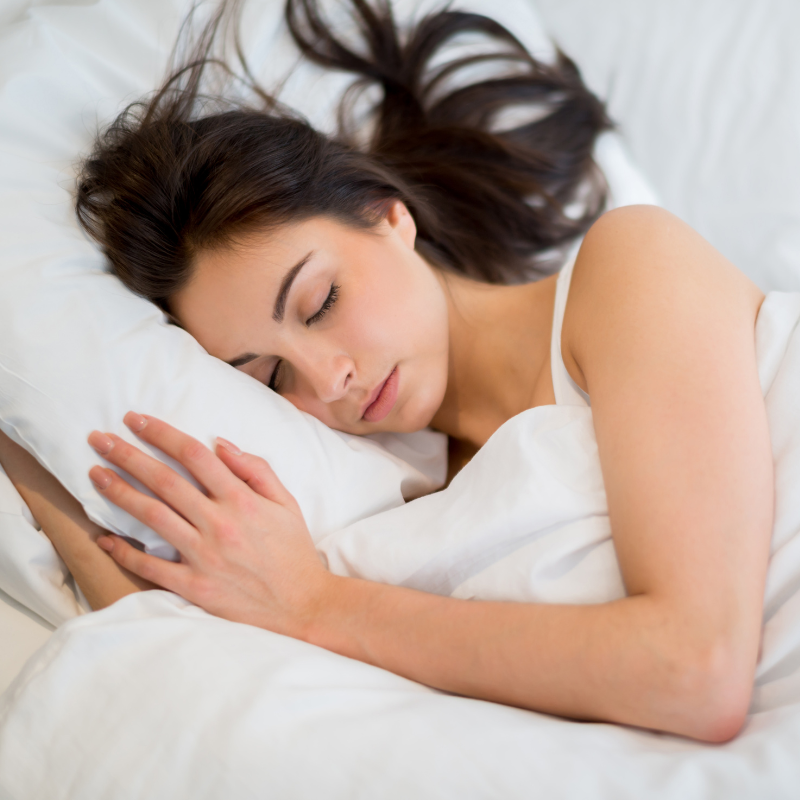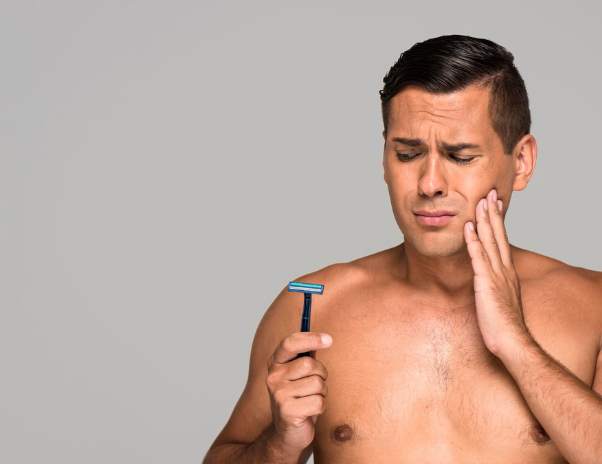
Posted date on Mar 25, 2023
There is a reason why the term ‘Beauty Sleep’ exists and all experts unanimously agree to it. While you sleep, your body does loads of damage control work. Your body works on regenerating new cells including skin and blood, lowering the level of cortisol which is the number cause of free-radical damage to your skin and much more. You can learn all about it here.
So, what happens when you don’t get enough sleep? Does it make your skin darker?
Simple answer, No - lack of sleep does not make your skin darker. But it can make your skin look duller and more tired. Also, when you don't get enough sleep, it can lead to increased stress levels which can cause breakouts and other skin issues.
Here’s what lack of sleep can do to your skin -
1. You deprive your skin of repair and recovery time:
There's a reason why you feel fresh as a daisy after a good night’s sleep. During sleep, your body produces growth hormone, which is essential for repairing and regenerating cells, including skin cells. If you don't get enough sleep, your body may not produce enough growth hormone, which can slow down the skin's natural healing process and make it more difficult for your skin to recover from damage.
2. Your skin gets dehydrated:
Lack of sleep affects the moisture and pH levels in your skin. Drop in your skin's pH levels affects your skin’s ability to produce moisture and makes it dry and dull. When you don't get enough sleep, your body produces more of the stress hormone cortisol, which can break down collagen, a protein that gives your skin its elasticity and firmness. As a result, your skin can become dull, dry, and wrinkled. Dry skin is more prone to breakouts and can trigger existing skin conditions like psoriasis. If you have naturally dry skin, it is important to use moisturisers to help you maintain pH levels of your skin to keep the moisture locked in throughout the night. Although it is important to note, it is not a substitute for a good 7 to 8 hours of sleep for a youthful looking skin.
3. You get dark circles:
Your skin might not get darker over night, but you might notice dark circles under your eyes in no time if you are consistently sleep deprived. Constricted blood vessels causing hyperpigmentation, or thinning of the skin around the eyes causes your blood vessels to dilate, which leads to dark circles. It could also be due to various reasons such as hyperpigmentation, anaemia, sun exposure, lifestyle habits like smoking or in general ageing. However, quality sleep every night can help you reduce the appearance of dark circles. If you are getting quality sleep but still struggling to reduce dark circles, consider speaking to a dermatologist for proper diagnosis and treatment.
Pigmentation, dark circles and black spots require a multimodal approach for best results. We at Dr. Divya’s Skin and Hair Solutions Clinic in Whitefield, Bengaluru your lifestyle and nutritional status is important, along with effective solutions to prevent pigmentation.
Lack of sleep doesn’t just affect your skin; it also impacts various functions of your body in the long run. Lack of time to recover can lead to risk of diabetes, heart disease, weekend immunity, high blood pressure, weight gain and much more.
Crazy work schedules, coupled with mindless scrolling time at night, it is easy to slip into a pattern of sleepless nights. But your body needs sleep as it needs air and food to survive. Not catching enough ZZZZZ's at night can wreak havoc on your mental and physical health.
Plus, getting enough sleep is crucial for maintaining healthy skin. To help keep your skin looking its best, aim for 7-9 hours of sleep per night and practise good sleep hygiene habits, such as sticking to a regular sleep schedule and creating a relaxing bedtime routine.




